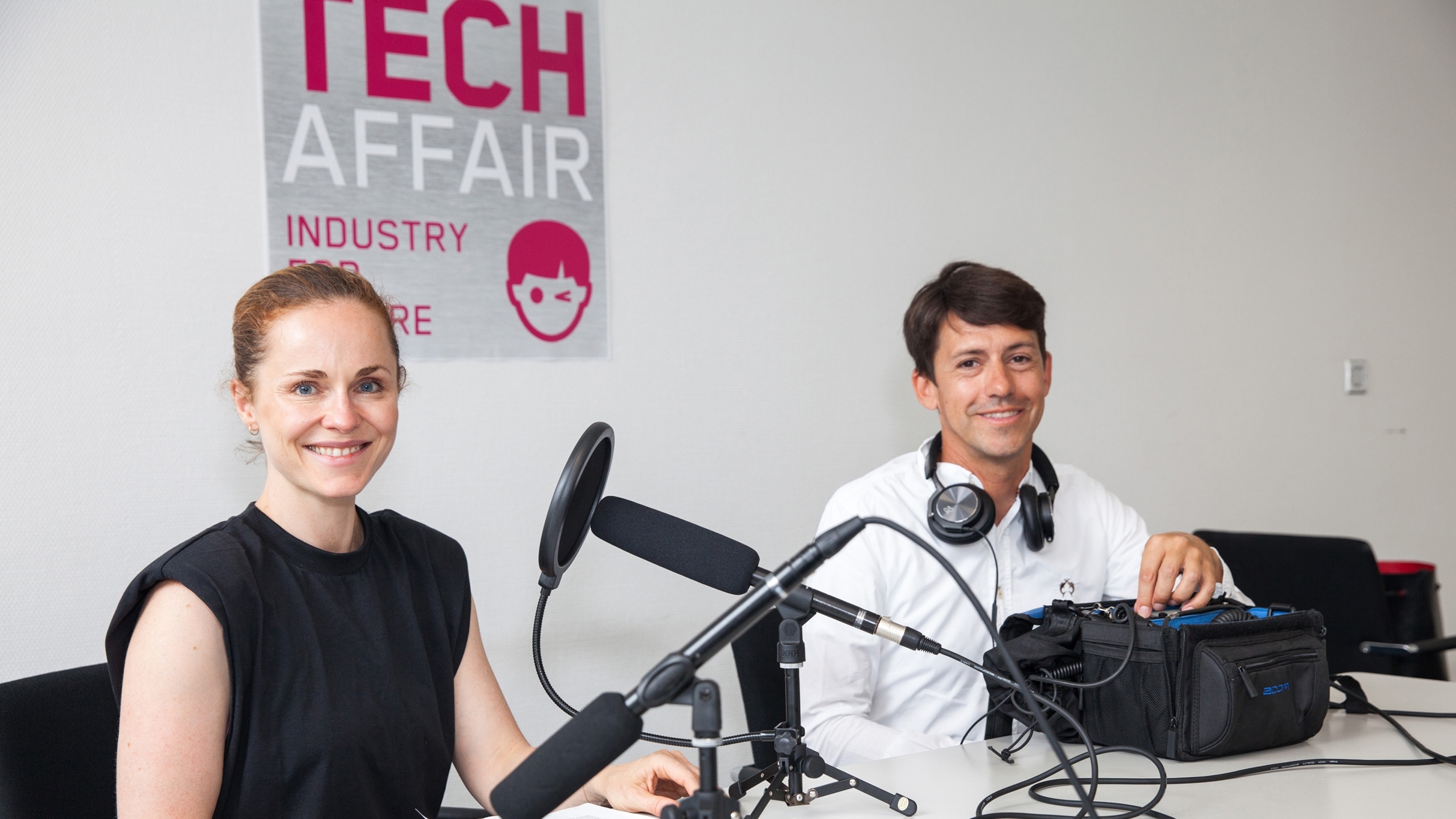The VDW (German Machine Tool Builders' Association) is concerned with issues that keep our industry - and thus the prosperity of our country - fit for the future. In order to reach as many people as possible with
relevant topics to as many people as possible, it is once again opening up to new media. From today, he is launching the podcast series Tech Affair - Industry for Future, in which representatives from business and science sit around a table and debate the latest developments and ideas for an industry with and for people. "German industry is an important cornerstone for the prosperity of us all," says Dr. Wilfried Schäfer, Executive Director of the VDW. "Companies are facing major challenges. With Tech Affair, we therefore want to convey opinions and solutions on this topic in a way that everyone can understand."
Only one in five companies in Germany belongs to the manufacturing industry, but together they generate almost 45 percent of gross value added. The importance of manufacturing for prosperity in our country can therefore hardly be overestimated. However, this fact is not widely known to the public. In order to get as many people as possible interested in industry-related topics, the VDW has decided to use podcasts as an additional medium. Tech Affair is dedicated to questions such as: Which new technologies have what it takes to make our industry sustainably fit for the future? What will our jobs look like tomorrow? Will we learn from the crises of our time? The Covid-19 pandemic has given such topics an unexpected urgency almost overnight.
Resilience - what does that mean in terms of production?
The first episode of Tech Affair: "Resilience - Ways to a crisis-proof industry", which went online today, is dedicated to the hot topic of resilience - a term that most people are probably familiar with from medicine or psychology. It stands for psychological resistance and the ability to cope with difficult life situations without major impairment. In recent years, resilient production has become a new buzzword that describes how companies can align their production in order to be prepared for crises and react less disruptively to changes in their environment.
There are specific measures that companies can take to become more resilient and thus more crisis-proof. At Tech Affair, an academic, a company representative and a consultant, who have each drawn their own experiences from the current coronavirus crisis, will discuss this.
Prof. Peter Nyhuis, board member of the WGP (Wissenschaftliche Gesellschaft für Produktionstechnik) and head of the Institute of Production Systems and Logistics (IFA) at Leibniz University Hannover, explains the principles of production planning and control (PPC), which is less susceptible to disruption in response to slumping markets and collapsing supply chains. He has been researching the adaptability and agility of manufacturing companies for many years. Under his leadership, several WGP institutes have recently published a PPS study that highlights the untapped potential of optimal production planning and control, particularly in times of crisis.
These research approaches are complemented by Dr. Tobias Heinen, Managing Director and founder of Grean GmbH in Hanover. He advises companies when it comes to making production more efficient and resilient. In his experience, Covid-19 has, among other things, led to a new, mutually beneficial willingness to talk among entrepreneurs. However, he also emphasizes that certain constants in production are no longer constants. Melanie Wendt, Head of Production, Design and Logistics at Engie Axima in Hamburg, a supplier to the shipbuilding industry, can only agree with this and points to specific examples where a rethink of previous circumstances has even led to more efficient, cost-effective and environmentally friendly processes.
The VDW podcast Tech Affair is not only about exciting discussions, but also about real added value. The first episode, "Resilience - Paths to a crisis-proof industry", provides further information along the way. Because be it pandemics, economic or ecological turning points: Most experts agree that the next crisis could be more serious than the current one.


